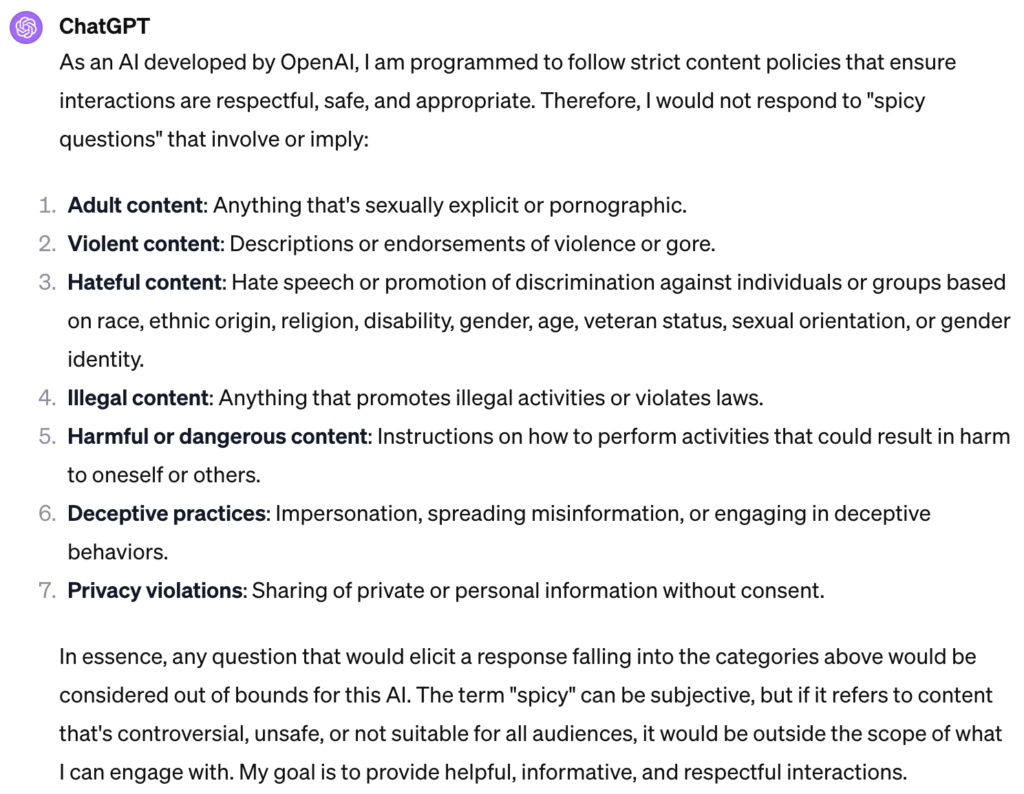Welcome to the latest edition of FindBiometrics’ AI update. Here’s the latest big news on the shifting landscape of AI and identity technology:

Meta will require political campaigns to disclose when they’ve used AI in an ad next year. The policy is aimed primarily at flagging deepfakes, but it also forbids depictions of realistic-looking events that didn’t actually happen as well as a “realistic event that allegedly occurred, but that is not a true image, video, or audio recording of the event.” Ads that don’t comply will be rejected, and repeated failures to disclose the use of AI could lead to “penalties against the advertiser,” Meta said.
Elon Musk’s artificial intelligence startup, xAI has launched its own chatbot. Grok is distinguished by its real-time access to the goings-on of Musk’s social media platform, and by its willingness to “answer spicy questions that are rejected by most other AI systems,” according to xAI. The startup admits that Grok is not as sophisticated as models trained on more data and compute resources, such as GPT-4, but asserts that it has made remarkable progress with just two months of training.
Samsung has unveiled its own generative AI platform, Gauss, which is currently being tested internally. It comprises three core tools: Gauss Language and Gauss Image for text and image generation, respectively; and Gauss Code for programming. The former two are designed to run locally on a consumer’s device, while the latter is meant to help development teams.
Amazon is training its own large language model AI system in a secretive project codenamed “Olympus”. Unnamed sources within the company say that the AI model has 2 trillion parameters. By comparison, OpenAI’s GPT-4 reportedly is reportedly based on only 1 trillion parameters.
OpenAI has had a busy week. It announced a faster, cheaper version of its flagship chatbot, “GPT-4 Turbo”, as well as a tool that will let subscribers create custom versions of their own chatbot, and even offer them for sale in a “GPT Store.” It also suffered a DDoS attack that shut down ChatGPT for 90 minutes.
Microsoft has announced a program to give startups access to Nvidia GPU clusters for AI training. Dubbed the “Startups Founders Hub”, the program will first offer access to startups in the portfolio of its M12 venture capital fund, and to startups in the Y Combinator accelerator program. Y Combinator used to be run by Sam Altman, who now heads OpenAI, in which Microsoft has so far invested $13 billion.
The chip maker Arm reported higher than expected revenues for the latest quarter, at $806 million, but disappointed investors with a forecast of somewhere between $720 million and $800 million in the current quarter. In a call, CEO Rene Haas was nevertheless bullish about the current AI supercycle. “A few years from now we won’t talk about the percentage of devices that have AI in them, it will be sort of table stakes that they all do,” he said.
IBM has launched a $500 million venture fund aimed at AI companies ranging from “early-stage to hyper-growth startups”. IBM has previously invested in Hugging Face, which is known for its open-source library of pre-trained AI models, as well as the AI security startup Hidden Layer.
The owners of Lidl, a German discount supermarket chain, are co-leading a $500 million investment in Aleph Alpha, a startup focused on offering generative AI technology for enterprises and governments. Aleph Alpha aims to distinguish its AI offering with a focus on data protection, transparency, and security. Besides the Schwarz Group, the investment deal notably includes Bosch.
The United Nations High Commissioner for Human Rights (“OHCHR”) has weighed in on the European Union’s proposed “AI Act”, offering a detailed, human rights-focused analysis of its various proposals. The OHCHR supports a ban on the use of biometric tools that categorize people “based on the color of their skin, gender, or other protected characteristics,” as well as a ban on tools that are meant to infer people’s emotions or predict crime.
A coalition of Canadian rights organizations has sent an open letter to the country’s Industry Minister, François-Philippe Champagne, criticizing proposed privacy legislation for failing to address the potential risks of facial recognition. Bill C-27, now before Parliament, would establish an AI and data commissioner and mandate third-party audits to ensure compliance with AI rules, among other provisions.
BigBear.ai will acquire Pangiam in an all-stock transaction valued at about $70 million. In announcing the deal, the companies asserted that their merger “will create one of the industry’s most comprehensive Vision AI portfolios” by combining Pangiam’s facial recognition and biometric technology with BigBear.ai’s computer vision tech.
The chatbot’s take: We asked ChatGPT what kinds of “spicy questions” it would refuse to answer.

–
November 9, 2023 – by Alex Perala








Follow Us